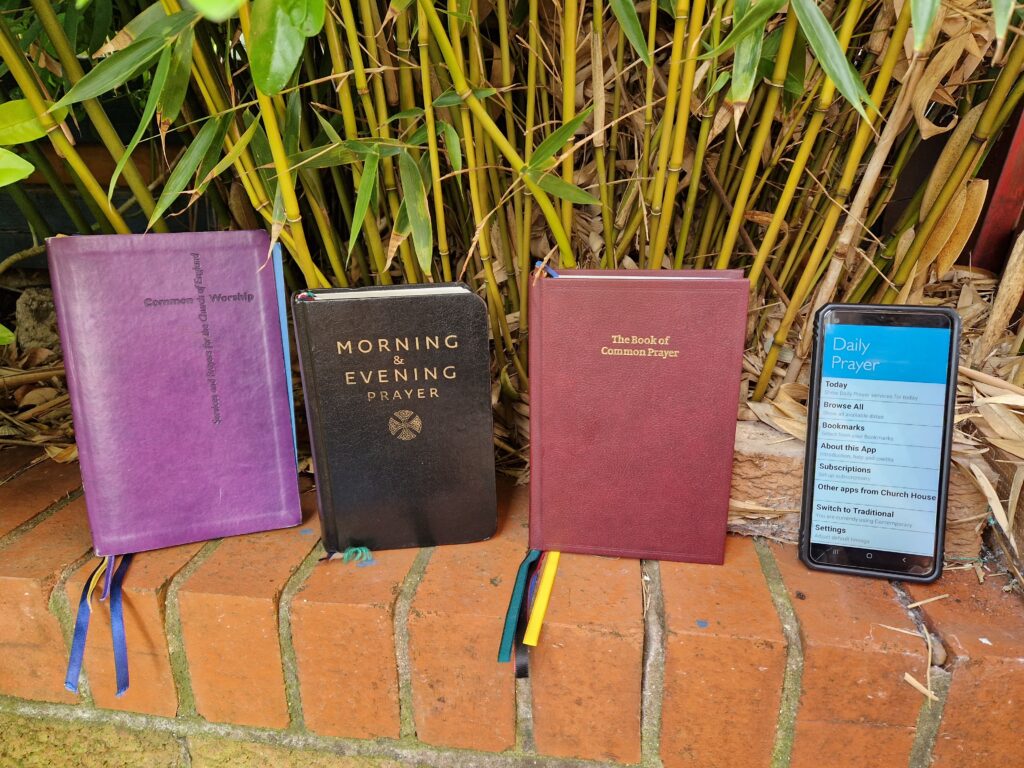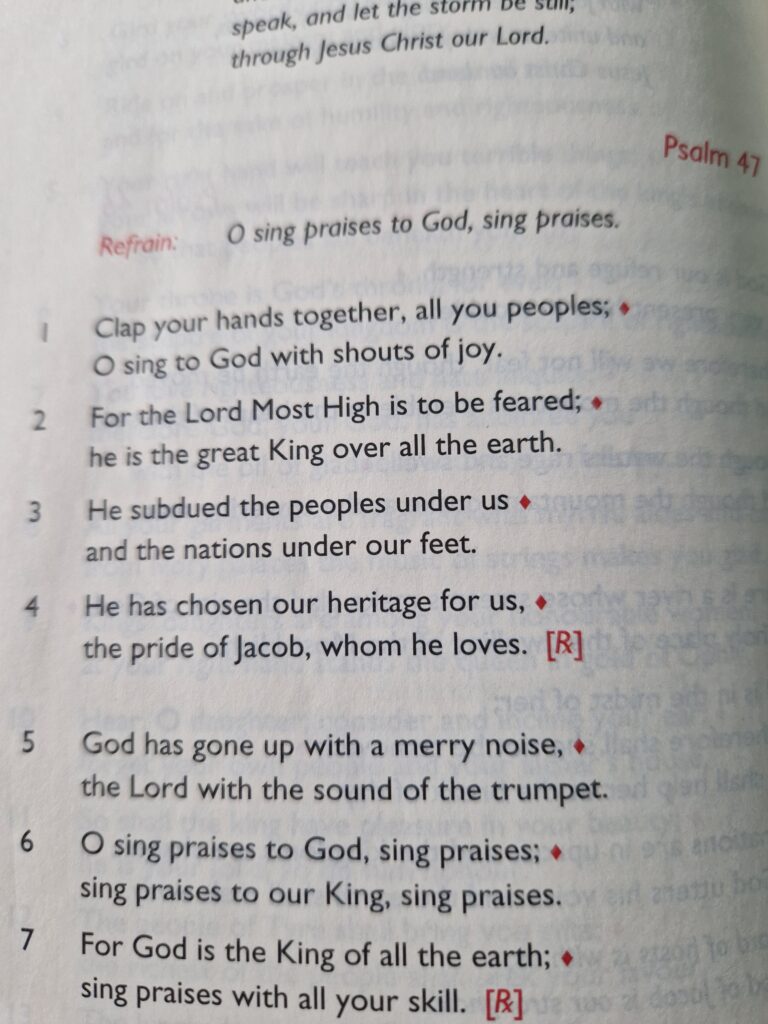
Finding Your Rhythm with the Daily Offices
For the ordained priesthood in the apostolic church, praying the daily offices of Morning and Evening Prayer isn’t just a suggestion; it’s a solemn duty required by Canon Law. This commitment underscores a profound truth: a Christian life is sustained by a consistent rhythm of prayer. While we as laypeople may not be bound by the same rule, the structure of morning and evening prayer is a powerful tool for our spiritual formation.
I’ll be honest, I struggle with this discipline. The daily office is often the first thing to fall away when I start to slip into bad habits or sin. It’s easy to feel that prayer is all about us, our feelings, and our needs. But what if it’s not? What if prayer, especially the daily office, is simply our duty to God—a steadfast act of love and praise, regardless of our feelings or circumstances? It’s our way of saying, “I am here, Lord, and I’m reporting for duty.”
Why Follow an Office? The Global Prayer Chain
You might be asking, “Why do I need to pray an office? Can’t I just pray whenever I want?” In truth, you can. However, by following the pattern of a Church prayer order, you are doing something profoundly beautiful: you are joining millions of Christians around the world in prayer. At any given moment, someone, somewhere, is reciting the same scripture, offering the same prayers, and lifting their heart to God in a shared rhythm. It’s a powerful act of unity, connecting you to the global Body of Christ, past and present.
For anyone looking to embrace this essential practice, here are a few options for prayer books, ranked by their ease of use.
Easy Option: Common Worship
This is an excellent starting point for anyone new to the daily office. It’s modern, straightforward, and easy to follow. Its language is contemporary and accessible, making it less intimidating than older texts. The service is typically concise, taking up to 15 minutes to complete, which makes it perfect for a busy morning or a quiet evening. This book offers a simple, clear path into the habit of structured prayer.
OR…if you prefer a digital version the CofE published a daily prayer app which you can download and read/listen to the office of prayers which is very good.
Link to buy: Common Worship Morning and Evening Prayer Book
Medium Option: The Book of Common Prayer (BCP)
For centuries, the BCP has been the cornerstone of Anglican worship. The language is majestic, poetic, and rich with theological depth. While it may take a bit more practice to navigate the various sections, the effort is well worth it. The BCP offers a profound and beautiful way to pray, guiding you through scripture and ancient prayers. The services typically take around 25 minutes or more, depending on the readings and additional prayers.
Link to buy: Book of Common Prayer
Advanced Option: The Roman Church Prayer Office
This is a beautiful but intricate option. Even the BCP’s original preface from 1549, written by Archbishop Thomas Cranmer, acknowledged the complexity of the Roman Catholic tradition. Cranmer famously stated that the “manifold changings of the service” made it a difficult and “intricate” matter to navigate. The Roman Office is deeply liturgical and rich with tradition, but it can be challenging for beginners due to its complex structure and extensive use of hymns, psalms, and readings. The services usually take around 20 minutes but may require more time to simply find your place.
Link to buy: Roman Catholic Prayer Office
A Note on the Little Red Stars: The Rubrics
As you explore these prayer books, especially the more traditional ones, you’ll notice small red stars called refrains or asterisks. These are part of the rubrics (the rules for the service). A priest friend of mine once taught me a beautiful way to understand them: when you see a red star, pause for the duration of a deep breath in and out. This simple act of pausing at a refrain turns the service into a contemplative, prayerful rhythm, grounding you in the moment and reminding you that you are not just reading words but communing with God.

The Perfect End: Bedtime Prayer (Compline)
Finally, if morning and evening prayer seems too much at first, consider starting with Compline, or Night Prayer. This short office is a lovely way to end your day, offering a moment of quiet reflection, confession, and trust in God’s care before you go to sleep. It’s a peaceful way to hand over the day’s worries and rest in the assurance of His protection.
Link to buy: Common Worship Night Prayer (Compline)
In summary
I encourage you to find a prayer book that fits your spiritual journey. It’s not about being perfect; it’s about starting somewhere and finding a rhythm of prayer that keeps you anchored to God’s presence, whether your heart feels it or not.


